-Trudenski
A Roadside View on the way
down out of the Andes

Guayaquil Malecon exercise circuit

Guayaquil Rotunda: a reenaction

In front of the amazing tropical garden on
the Malecon in Guayaquil





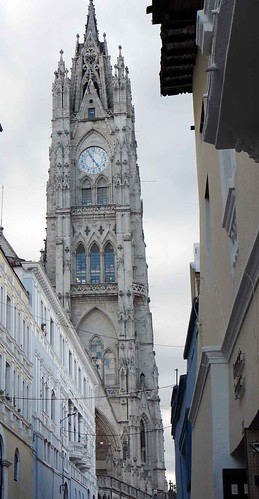

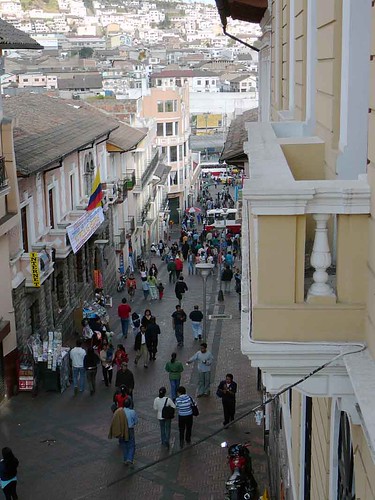
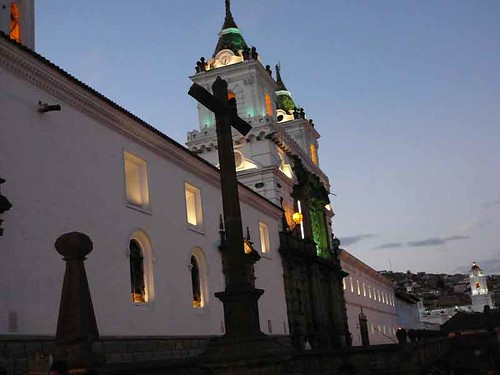
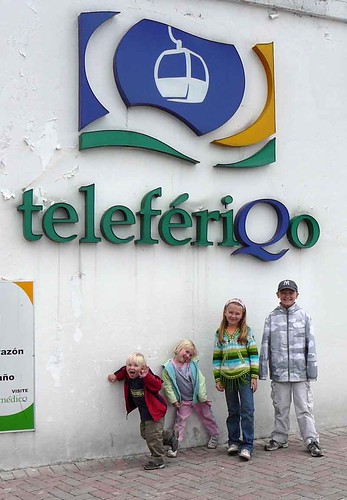

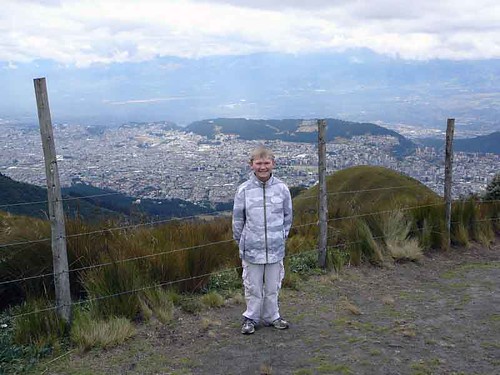

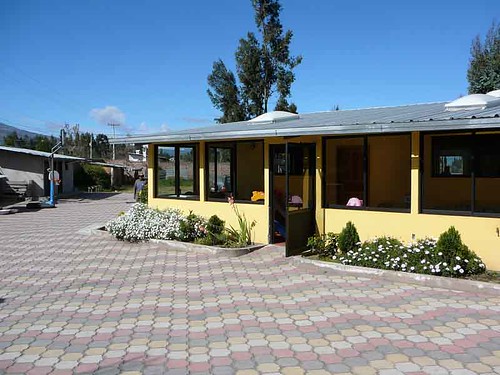

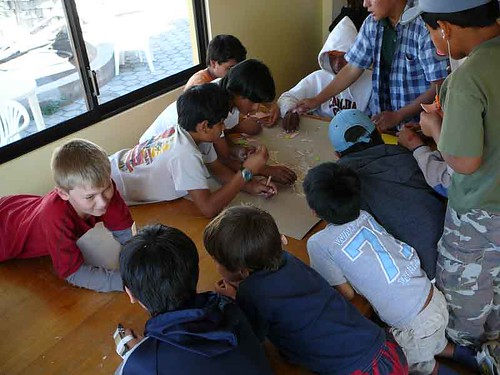
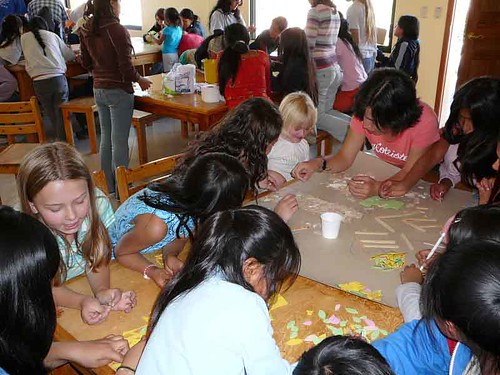










Unfortunately, while we daydreamed about this place, something was happening. Call it cable TV, the internet, globalization, or whatever;
Not that we didn´t enjoy Baños. It´s a great little tourist town with spectacular views, nice climate, impressive waterfall, easy access to the jungle, and pizza! On our second day there, Pedro, a friendly taxi-driver, took us sightseeing on the road to the jungle. Blake and Nathan rode the terabita (basket on a cable across a canyon); all of us hiked to view the Pailon del Diablo, another beautiful waterfall; and we travelled down a dirt road to Casa del Arbol—a resort that had a 7-story tree-house, cave complete with resident bat, and swimming pool. Once in Puyo, we had almuerzo at his friend´s restaurant, we briefly visited
Baños is just one example of the globalization of
We`ve been told, by our missionary friends, that often in a family, the husband will leave for the States, work there, and send money back. Apparently, the divorce rate is 70%. Television shows are, as Blake had mentioned in a previous blog, very risqué, and in fact we`ve been shocked by the commercials during a news report. From what I`ve seen, there are two main lifestyles. One seems to be the fate for most indigenous families: living below the poverty level. They do the hard labor, the domestic work; some still farm, raise cattle, weave, make simple goods—but instead of just relying on market day, they roam the streets of the city, even board buses to sell their wares. The other group consists of people working in blue and white collar jobs, scraping by on $160 per week, but obviously enamored by the American dream. A few very smart or lucky ones may own stores on main streets, like Rolando and Nori, employing maids and employees to maintain their homes and businesses, aspiring to own the status symbols like SUVs and country homes.





At the mercado...
they must have cut off a pound of hair.
In Loja the weather was pleasantly warmer than Cuenca. We bought three pounds of really good coffee at the downtown mercado. No more Sanka for us! At the same mercado, you can buy underwear, fresh meat, or get your hair done. Nathan got a $2 haircut and Blake got an invigorating shave. We visited a fabulous park (Jipiro) that had a lake, tame llamas, a skatepark with a fullpipe, and elaborate playhouses in the shapes of castles.



